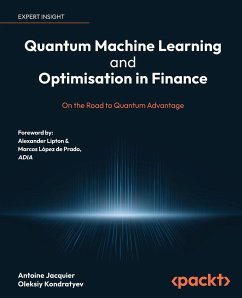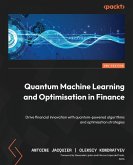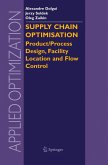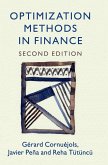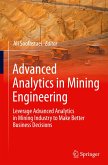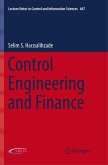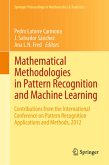Learn the principles of quantum machine learning and how to apply them While focus is on financial use cases, all the methods and techniques are transferable to other fields Purchase of Print or Kindle includes a free eBook in PDF Key Features: - Discover how to solve optimisation problems on quantum computers that can provide a speedup edge over classical methods - Use methods of analogue and digital quantum computing to build powerful generative models - Create the latest algorithms that work on Noisy Intermediate-Scale Quantum (NISQ) computers Book Description: With recent advances in quantum computing technology, we finally reached the era of Noisy Intermediate-Scale Quantum (NISQ) computing. NISQ-era quantum computers are powerful enough to test quantum computing algorithms and solve hard real-world problems faster than classical hardware. Speedup is so important in financial applications, ranging from analysing huge amounts of customer data to high frequency trading. This is where quantum computing can give you the edge. Quantum Machine Learning and Optimisation in Finance shows you how to create hybrid quantum-classical machine learning and optimisation models that can harness the power of NISQ hardware. This book will take you through the real-world productive applications of quantum computing. The book explores the main quantum computing algorithms implementable on existing NISQ devices and highlights a range of financial applications that can benefit from this new quantum computing paradigm. This book will help you be one of the first in the finance industry to use quantum machine learning models to solve classically hard real-world problems. We may have moved past the point of quantum computing supremacy, but our quest for establishing quantum computing advantage has just begun! What You Will Learn: - Train parameterised quantum circuits as generative models that excel on NISQ hardware - Solve hard optimisation problems - Apply quantum boosting to financial applications - Learn how the variational quantum eigensolver and the quantum approximate optimisation algorithms work - Analyse the latest algorithms from quantum kernels to quantum semidefinite programming - Apply quantum neural networks to credit approvals Who this book is for: This book is for Quants and developers, data scientists, researchers, and students in quantitative finance. Although the focus is on financial use cases, all the methods and techniques are transferable to other areas. Table of Contents - The Principles of Quantum Mechanics - Adiabatic Quantum Computing - Quadratic Unconstrained Binary Optimisation - Quantum Boosting - Quantum Boltzmann Machine - Qubits and Quantum Logic Gates - Parameterised Quantum Circuits and Data Encoding - Quantum Neural Network - Quantum Circuit Born Machine - Variational Quantum Eigensolver - Quantum Approximate Optimisation Algorithm - The Power of Parameterised Quantum Circuits - Looking Ahead - Bibliography
Bitte wählen Sie Ihr Anliegen aus.
Rechnungen
Retourenschein anfordern
Bestellstatus
Storno

